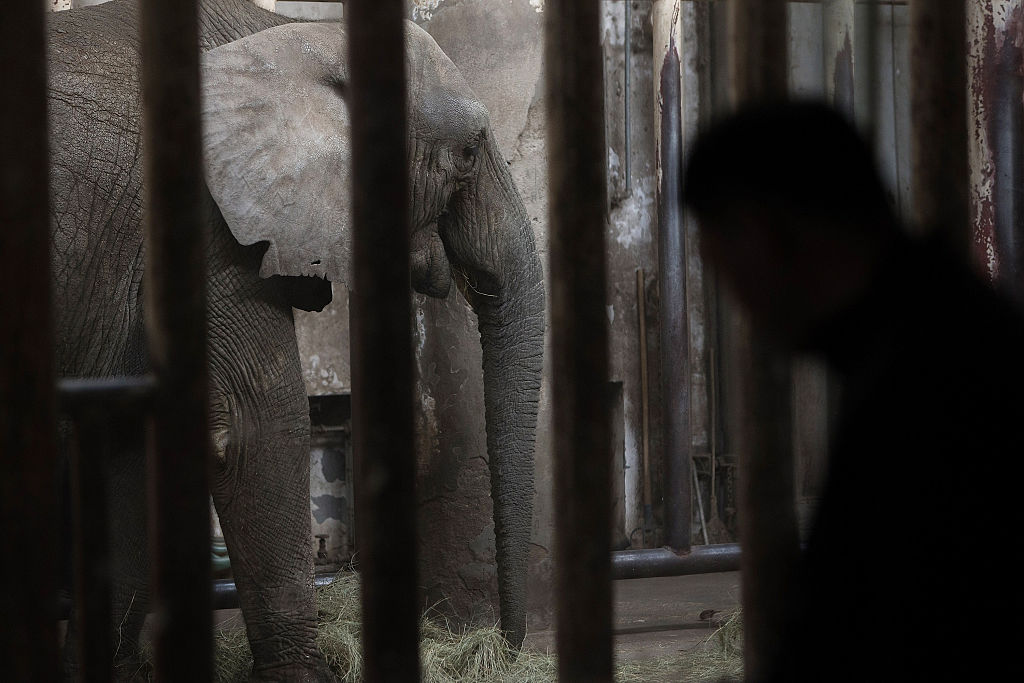Li Song portrayed herself as a legitimate businesswoman in Zimbabwe, but that portrayal masked a dark reality. Authorities say the woman now known as the “Ivory Queen” or “Cyanide Queen” led a wildlife poaching ring that captured African elephants and shipped them to China.
Last year, she was arrested and charged with fraud, perjury and illegally sending foreign money to Chinese accounts. Song, 53, was accused of importing 40 tons of sodium cyanide and hydrated lime from Mauritius to her company, DGL9 Investments, to avoid paying an excise tax. This violated health and environmental laws and public safety protocols. She was granted bail but failed to attend show up in court.
Cyanide poisoning is a particular threat to elephants in Hwange National Park, Zimbabwe’s biggest nature reserve. Poachers put cyanide in watering holes used by the animals. It was not clear how Song intended to use the cyanide. African elephants face a high risk of extinction.

“The use of poison in illegal wildlife trade is always a concern because not only is it a silent and effective way of killing animals, but the knock-on effects within the ecosystem are large,” Nathan Webb, of the Wildlife Conservation Coalition, told Oxpeckers, which investigates environmental issues in Southern Africa. “This is not something that has previously had a charge or a penalty. The biggest deterrent has got to be the penalties and fines and the punishment that people get when caught with such issues.”
Elizabeth Valerio, a Hwange-based conservationist and leader of opposition political party United Zimbabwe Alliance, told Oxpeckers that poachers have been using cyanide for more than a decade.
“Some of these activities had far higher authorities behind them,” Valerio said.
Although Zimbabwean officials say Song was deported last year for being a national security threat, her whereabouts are not publicly known. Zimbabwean officials are accused of protecting Song due to her deep ties with authorities, politicians and businesspeople. She has homes in Shanghai, Harare and Ottawa, Canada, according to Kenya Insights.
In 2015, Song established the Sino-Zim Wildlife Foundation and served as its chairperson. This was a joint venture between Chinese conservationists and the Zimbabwe Parks and Wildlife Management Authority.
“Sino-Zim Wildlife Foundation will mobilize efforts with China to mobilize support for conservation in Zimbabwe,” she said at the time, according to Kenya Insights. “We are going to work hard to resolutely fight poaching and illegal transportation and sale of animal products.”
However, her record includes allegations of corrupt, cruel wildlife deals. A year after Sino-Zim was established, Zimbabwe sold 35 baby elephants to China. This was described as wildlife abuse because the animals were taken from their mothers in the wild.
In 2017, Humane Society International obtained footage of 14 young elephants awaiting transport to China after being caught in Hwange National Park, Kenya Insights reported. The footage showed the animals being beaten and kicked as they were sedated and taken to holding pens.
These actions drew criticism from other African countries, nongovernmental organizations and elephant experts such as Dr. Joyce Poole, who described the treatment as “tragic and morally reprehensible,” according to Kenya Insights.
China became a dominant buyer of African elephants in 2012. Between 2012 and 2019, Zimbabwe sold 140 young elephants to China. At least 20 of them died while being transported. They were sold for $30,000 to $40,000 each.
Exporting them involved capturing juvenile elephants from wild herds in Hwange National Park. Gunmen in helicopters would shoot them with tranquilizer darts so they could be caught. They were trucked to pens at a holding facility and quarantined for a few months before being flown to China, Dr. Adam Cruise, who teaches animal and environmental ethics at South Africa’s Stellenbosch University, wrote in The Journal of African Elephants.
“Condemning these elephants to a life of captivity … is a tragedy,” elephant biologist Audrey Delsink, wildlife director at Humane Society International Africa, told The Independent in 2019. “We and others have been working for months to try and stop these elephants being shipped because all that awaits them in China is a life of monotonous deprivation.”
Due to high demand in China for wildlife products used in traditional Chinese medicine, other species, including pangolins, lions, sable antelope, baboons, hyenas and rhinos also are exported from Zimbabwe to China. In November 2024, two Chinese nationals, Lin Wang and Fuxi Wang, were arrested when they tried to smuggle $360,000 worth of rhino horns out of Zimbabwe.

